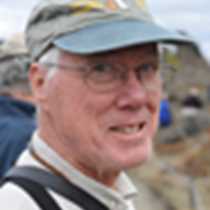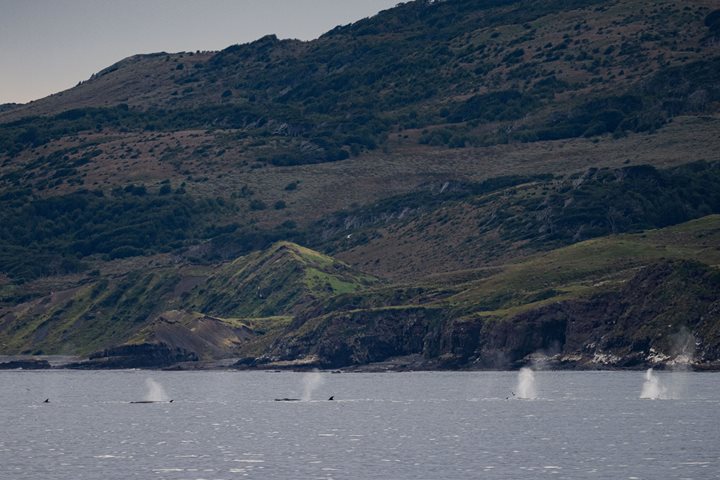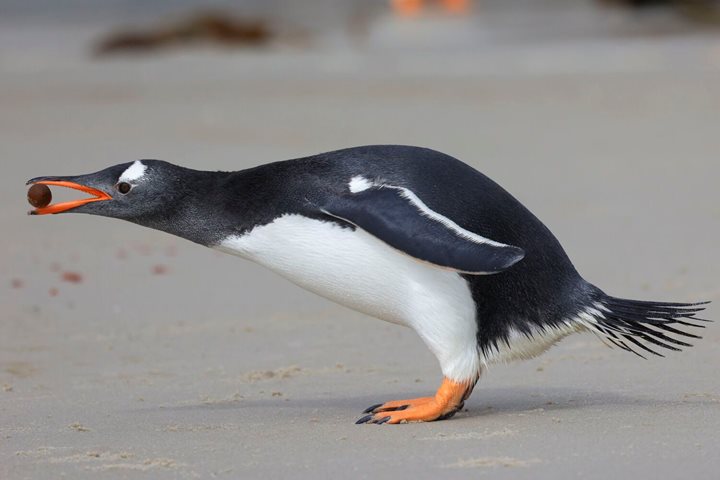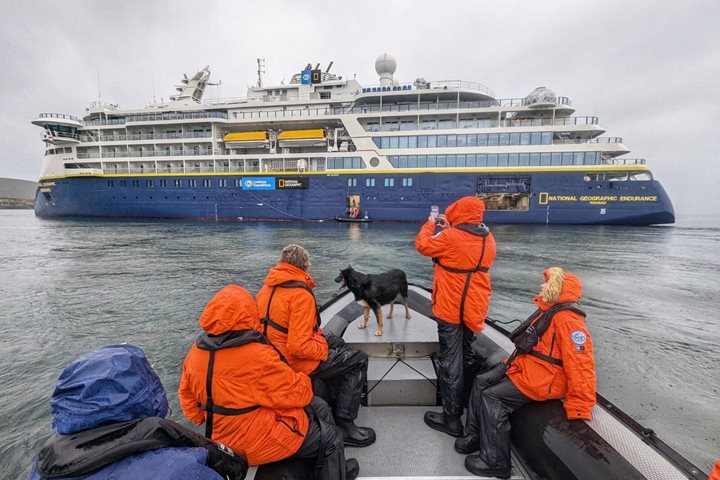Imagine yourself a member of Ernest Shackleton's imperial transantarctic expedition. Perhaps you signed on as a stoker, to shovel coal into the steam engine, or an ordinary seaman, to climb the rigging and tend the sails. You intended to stay with the ship and return to warmer climes while Shackleton and his selected colleagues headed off in their attempt to cross the Antarctic Continent to reach the Ross Sea. You most definitely did not sign on to spend two winters shipwrecked in the Antarctic, but that is where you find yourself. Now, it is April of 1916 and for the first time in sixteen months, you stand on land. But what land?! You are on Elephant Island, the last speck of land of the South Shetland Archipelago. Had you missed that, you would have drifted off to the east, lost forever. But here you are, on this tiny, narrow spit of land, glacier on one side, near vertical rock on the other. It is not much of a home, but it is the only place where you can remain while The Boss sets off on his audacious plan: to cross 800 miles of the world's most turbulent sea to attempt to reach South Georgia Island and the whaling stations there. If he succeeds, he will bring rescue to you and your twenty one comrades. If he fails...well, we dare not contemplate that. So here you wait. It is early winter. The chinstrap penguins have deserted the island. Only a few seals and penguins are there to augment your scant meals of pemmican—a mixture of meat and lard intended for the sledging party that never was—and hard ship's biscuits. Your fuel is the fat of penguins and seals; your home is under the two overturned lifeboats from Endurance. As the winter progresses the supplies are depleted, and you resort to chipping limpets from the rocks to add to the hoosh (pemmican boiled into a gruel.) Tobacco runs short, and men smoke tea leaves or the grass that was brought to insulate their boots. For the few who had rationed their tobacco, a pipeful could be traded for a penguin breast or an extra biscuit. For entertainment, Meteorologist Leonard Hussey plays his banjo, and the men sing songs of their own making. And you wait, trying to sustain the hope that The Boss will return. Some lost hope, but never your leader, Frank Wild, whose faith in Shackleton knew no limits:
Oh, my name is Frankie Wild-O
My hut's on Elephant Isle.
The wall's without a single brick
And the roof's without a tile.
But nevertheless, I must confess,
For many and many a mile,
It's the most palatial dwelling place
You'll find on Elephant Isle.
The National Geographic Explorer reached Point Wild, Elephant Island, this morning. As we pulled into our anchorage, the glacier let loose a large mass of ice into the cold sea. Such an event would have struck terror into the hearts of the men late of Endurance. Chinstrap penguins massed on the snow, waiting for it to melt so they can begin their annual breeding. We boarded Zodiacs to view the desolate-looking site from water, cruising where we earlier saw, in Frank Hurley's remarkable photos, the launching and provisioning of the James Caird for the crossing to South Georgia.
We departed, heading south across Bransfield Strait. For a special afternoon tea, Hotel Manager Patrik Svaerdmyr and the hotel staff invited us to see some of the inner workings of the ship, with a diversity of cookies and cakes served in the laundry and beverages served in the bonded storeroom. The crew of National Geographic Explorer operates like a well-tuned machine, ever efficient, ever friendly, and cheerful. What a clever way to give us a behind-the-scenes look at the workings of the ship. We will appreciate our cleaned and freshly ironed clothing all the more.
This expedition report was meant to end here, but no. Near the end of dinner, the voice of our expedition leader told us that we were approaching a group of humpback whales. An abundance of krill in the ocean could be seen on the ship's depth finding sonar, and this had attracted the whales, newly arrived from their wintering grounds off the west coast of South and Central America. Three whales, in particular, seemed attracted to the ship as we ran back and forth, port to starboard, to look down on their long, white pectoral fins almost glowing aqua through the surface water. If that wasn't enough, one whale rolled to wave its pectoral fin in the air for all to see. Why did it do so? Heck, we don't know.







